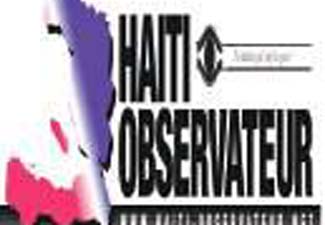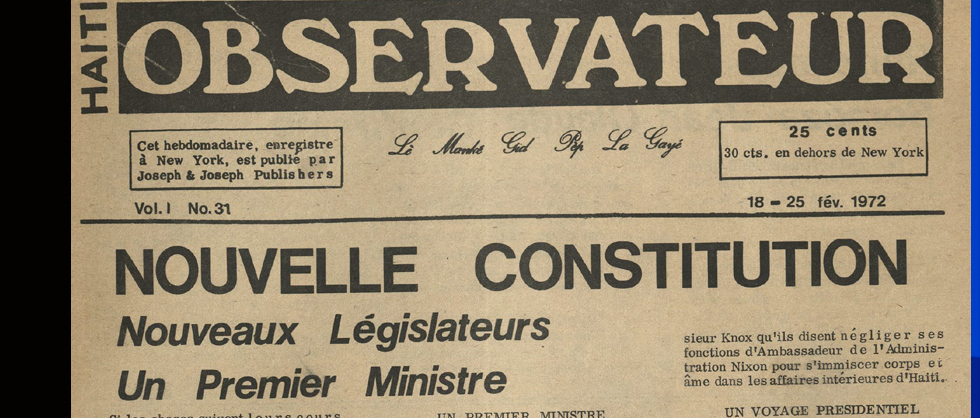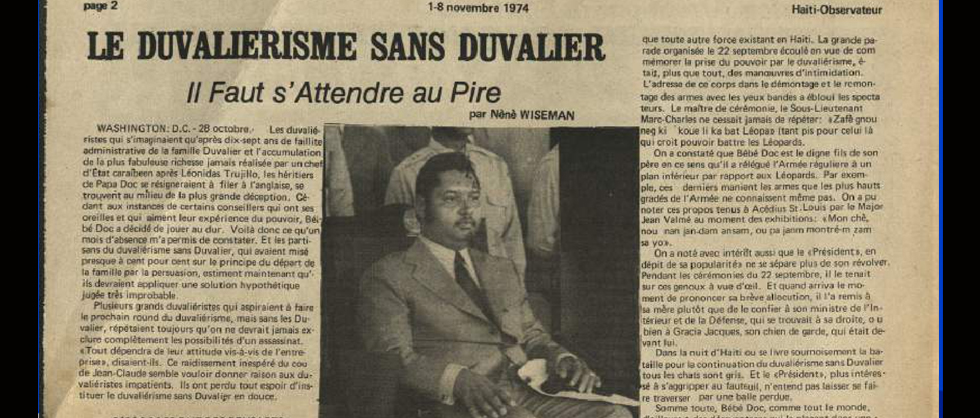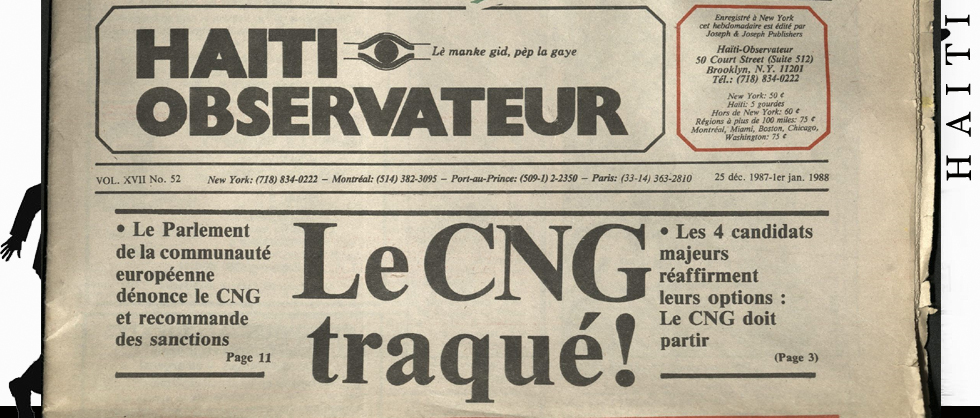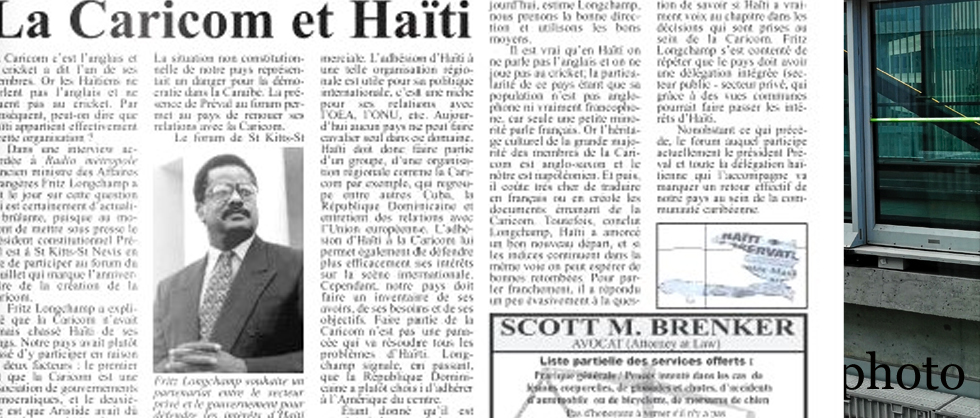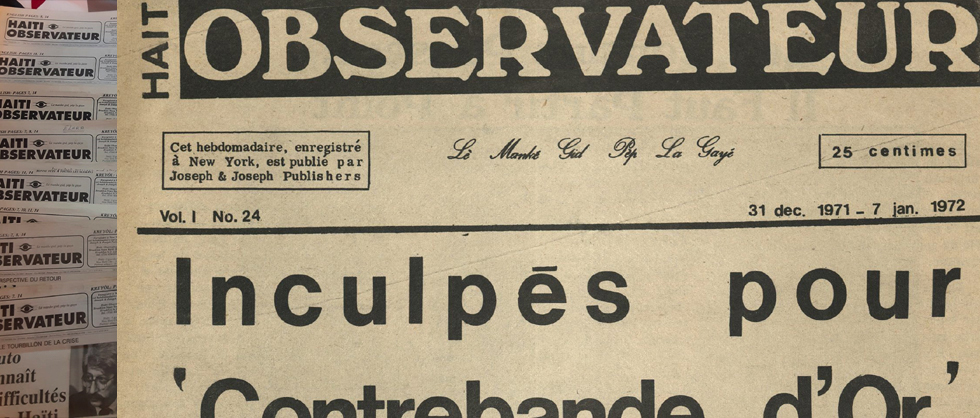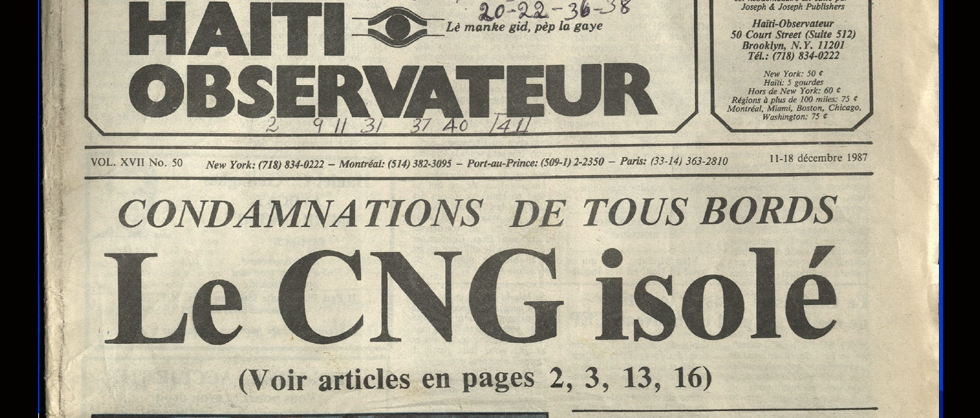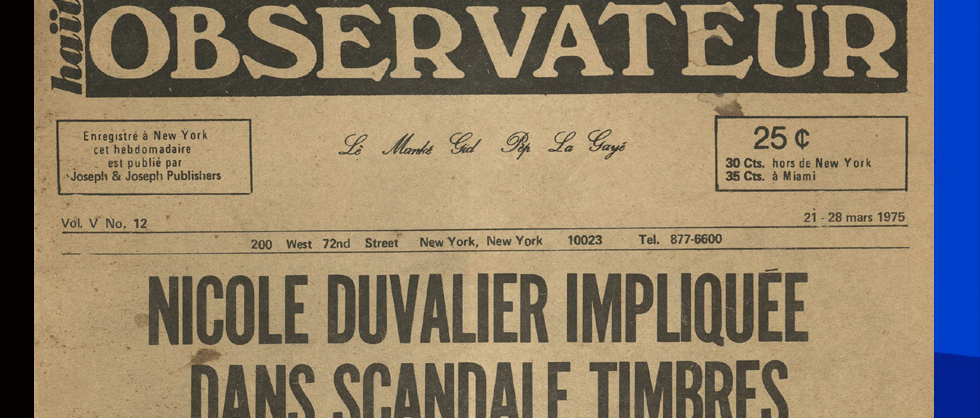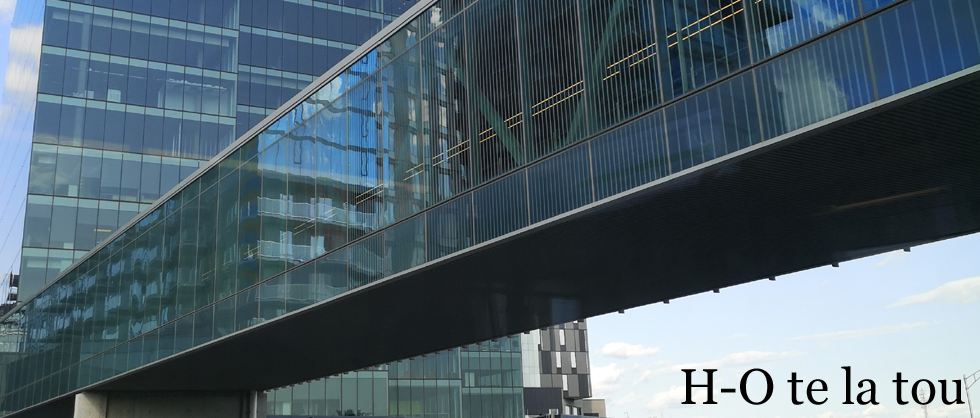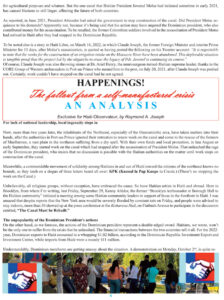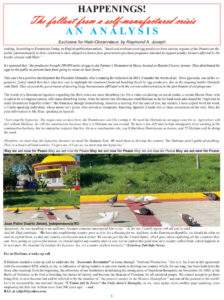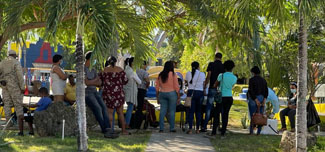
4 October 2023—HAPPENINGS!
- AN ANALYSIS
- The fallout from a self-manufactured crisis
- By Raymond A. Joseph
A deepening crisis is buffeting Haiti and the Dominican Republic since September 15, when Luis Abinader, the Dominican president, ordered the closing of the border between the two nations sharing sovereignty of the second largest island in the Caribbean, second only to Cuba. He also banned air and sea traffic between the two countries moved troops to the border, and stopped providing visas to Haitians, while vowing that nothing will be rectified until his will is done.
As reported, this was Mr. Abinader’s reaction to the construction of a canal on the Haitian side of the border to tap water from the infamous Massacre River that serves as border between the two countries in northeastern Haiti, for 4.35 miles of its run of 34.175, before flowing into the Atlantic Sea at the Manzanillo Bay. The fact that the river originates in the northern side of the mountain range of the Cordillera Central, some Dominicans, apparently President Abinader among them, consider that the river is theirs. I understand that, to counteract the work of the Haitians, Mr. Abinader would be planning to deviate the flow of water at a level higher than Ouanaminthe where the Haitian canal is being built. But he may run out of time.
Forget that a 1929 treaty, signed by the two nations, acknowledges that both countries are entitled to use water from the river for their needs. Over the years, the Dominicans have greatly exercised their prerogatives, building 11 canals on their side of the river, tapping water for agricultural purposes and whatnot. But the one canal that Haitian President Jovenel Moïse had initiated sometime in early 2021, has caused frictions to still linger, affecting the future of both countries.
As reported, in June 2021, President Abinader had asked the government to stop construction of the canal. Did President Moïse acquiesce to his demands? Apparently not, because it’s being said that his action may have angered the Dominican president, who also contributed money for his assassination. To be recalled, the former Colombian soldiers involved in the assassination of President Moïse had arrived in Haiti after they had stopped in the Dominican Republic.
To be noted also is a story in Haiti Libre, on March 14, 2022, in which Claude Joseph, the former Foreign Minister and interim Prime Minister for 13 days, after Moïse’s assassination, is quoted as having posted the following on his Tweeter account: “It is regrettable to note that the works for the construction of an irrigation intake on the Massacre River have been abandoned. This deplorable situation is tangible proof that the project led by the oligarchs to erase the legacy of Pdt. Jovenel is continuing its course.”
Of course, Claude Joseph was also throwing stones at Dr. Ariel Henry, the neurosurgeon-turned-Haitian supreme leader, thanks to the CORE Group of Western ambassadors in Port-au-Prince who named him to the post, on July 20, 2021, after Claude Joseph was pushed out. Certainly, work couldn’t have stopped on the canal had he not agreed.
For lack of national leadership, local ingenuity steps in
Now, more than two years later, the inhabitants of the Northeast, especially of the Ouanaminthe area, have taken matters into their hands, after the authorities in Port-au-Prince ignored their entreaties to renew work on the canal and come to the rescue of the farmers of Maribaroux, a vast plain in the northeast suffering from a dry spell. With their own funds and local protection, in late August or early September, they started work on the canal which had stopped after the assassination of President Moïse. That unleashed the rage of the Dominican president, who insists that no discussion is possible with the Haitian authorities on the matter until work stops on construction of the canal.
Meanwhile, a commendable movement of solidarity among Haitians in and out of Haiti toward the citizens of the northeast knows no bounds, as they latch on a slogan of three letters heard all over: KPK (Kannal la Pap Kanpe in Creole.) (There’s no stopping the work on the Canal.)
Unbelievably, all religious groups, without exception, have embraced the cause. So have Haitian artists in Haiti and abroad. Here in Brooklyn, from where I’m writing, last Friday, September 29, Kenny Altidor, the former “Brooklyn Ambassador at Borough Hall to the Haitian community” initiated a meeting among some Haitian community leaders in support of those in the forefront in Haiti. I was amazed that despite reports that the New York area would be severely flooded by constant rain on Friday, and people were advised to stay indoors, more than 30 showed up at the press conference at the Rishavena Hall, on Flatbush Avenue to participate in the discussion entitled, “The Canal Must be Rebuilt.”
The unpopularity of the Dominican President’s actions
On the other hand, as we foresaw, the actions of the Dominican president represent a double-edged sword. Haitians, we wrote, won’t be the only one to suffer from the crisis that he unleashed. The financial transactions between the two countries tell it all. For the 2022-year, Dominican exports to Haiti amounted to a whopping $1.02 billion, according to the Dominican Republic Investment Export and Investment Center, while imports from Haiti were a measly $11 million.
Understandably, Dominican merchants are getting uneasy about the situation. A demonstration on Monday, October 2nd, is quite revealing. According to Dominican Today, an English publication online, “Small and medium-sized egg producers from various regions of the Dominican Republic [demonstrated] to draw attention to their alleged exclusion from government purchase programs intended to support poultry farmers affected by the border closure with Haiti.”
It’s reported that “the producers brought 200,000 units of eggs to the Farmer’s Monument in Moca, located on Ramón Cáceres Avenue. They distributed the eggs to the public to prevent them from going to waste on their farms.”
This can’t be a positive development for President Abinader, who’s running for reelection in 2024. Consider the words of an “Elvis Quezada, one of the organizers, [who] stated that their objective was to highlight the imminent financial hardship faced by egg producers, due to the ongoing border blockade with Haiti. They accused the government of favoring large businessmen affiliated with the current administration in the distribution of aid programs.”
The words of a Dominican legislator regarding the Haiti crisis are more disturbing yet. On a video circulating on social media, a certain Hector Diaz, who is said to be a Congress person, tells some disturbing truths, when he admits that Dominicans need Haitians to do the hard work and should be “exploited to make Dominican Republic richer.” His frankness, though disheartening, deserves a hearing. For the sake of you, my readers, I have copied word for word, a Creole-speaking individual, whose name isn’t given, who served as interpreter. Knowing Spanish, I made two or three corrections of my own. Here for your information is Mr. Diaz, speaking in Spanish:
“Let’s stop the hypocrisy. The sugar cane we have here, the Dominicans won’t be cutting it. We need the Haitians to cut sugar cane for us. Agriculture will fail without Haitians. So will the construction business, that is if Haitians are not around. We have a law 820 that forbids immigrants from working in the construction business, but no enterprise respects that law. Go to a construction site, you’ll find three Dominicans as bosses, and 75 Haitians will be doing the work.
Therefore, we must stop the hypocrisy because we need the Haitians here. We need them to develop the country. The Haitians aren’t guilty of anything. They’re a bunch of hard workers. Forgive me, if I say so, we must stop the hypocrisy.”
Apparently, he was speaking to an audience, because someone interrupted him to say: “As for me, I totally agree with all you’ve said.”
And Mr. Diaz continues: “We have this neighboring country, poor as it is, it’s a blessing for us. And here, in the Dominican Republic, we should do what we must to exploit them, so that our country can become much richer. We can do just like the United States, which goes about exploiting all the countries they can. Now, acting as a powerful nation, we should exploit any country that we can. Let us exploit this gold mine of a country called Haiti, which happens to be next door. We shouldn’t be foolish! It’s business. Yes, it’s a matter of plain business!” (Courtesy Pati Info News).
For us Haitians, a wake-up call
If Haitians needed a wake-up call to undertake the “Economic Revolution” at home through “National Production,” this is it. So, I am in full agreement with the movement KPK which, to me, is indicative of taking matters in our own hands to develop our country which, for too long, has been held down by those who resented, from the beginning, the effrontery of our forefathers in defeating the strong army of Napoleon Bonaparte, on November 18, 1803, at the Battle of Vertières, to be first in breaking the chains of slavery and become the Beacon of Freedom, for all enslaved people. We cannot accept to go from being first, to now become last and be referred to by the moniker of “the poorest country in the Western Hemisphere” and one of the poorest in the world! Let’s be animated by our national slogan: “L’Union fait la Force” (In Unity there’s Strength), as we, once again, write another page equaling, even surpassing the first one written more than 200 years ago!
RAJ, at raljo31@yahoo.com
- P.1
- P.4
- P.5
cet article est publié par l’hebdomadaire Haïti-Observateur, VOL. LIII, No. Édition spéciale Canada du 4 octobre 2023, et se trouve en P.1, 4, 5 à : specialho4octobre2023Printweb
Haïti-Observateur / ISSN: 1043-3783
